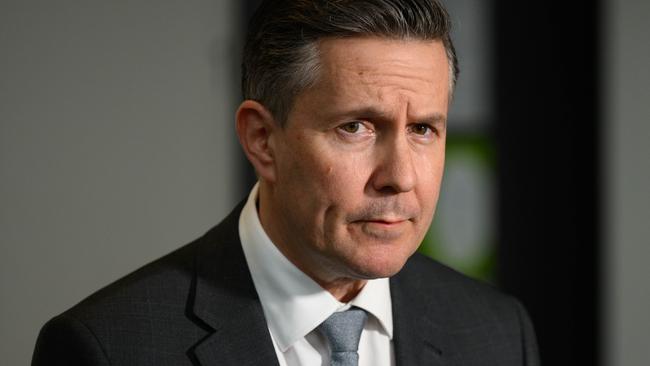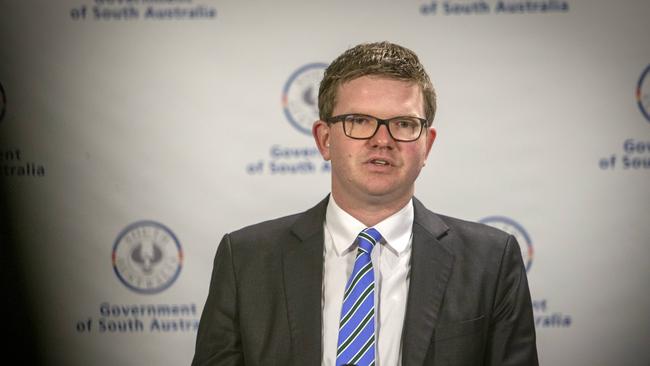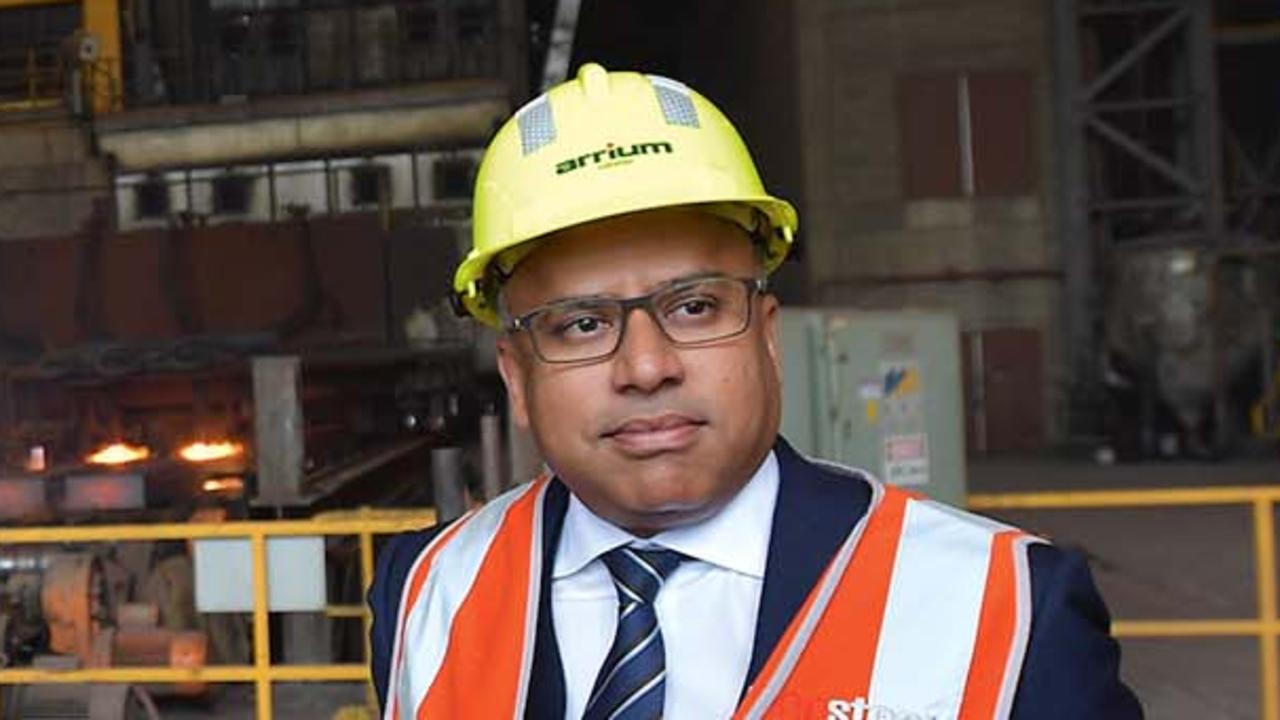GP bulk-billing warning for SA towns facing doctor shortages
Patients in the country – and parts of Adelaide – need to stop relying on bulk-billing if they want their doctors to stay in town, GP leaders warn.

SA News
Don't miss out on the headlines from SA News. Followed categories will be added to My News.
People in country towns and outer-city suburbs will need to pay gap fees rather than rely on bulk-billing if they want to keep GPs in their area, medical authorities have warned.
It comes as rising inflation puts pressure on household budgets, with officials saying a national and state GP shortage is imminent. Yankalilla is the latest town to lose a GP clinic.
“More and more patients will need to decide if they want to pay a gap to see a doctor or have no doctor at all,” Daniel Byrne says.
The Royal Australian College of GPs SA and NT chairman, pictured, predicted more areas would lose clinics unless patients were prepared to pay gap fees to keep them viable.
The bulk-billing Greater Fleurieu Medical Centre at Yankalilla, which had three GPs, shut this month citing an “inability to obtain further doctors to rural areas” and directed patients to try a clinic at Christies Beach, 45km away.
“Unfortunately, the combination of doctor shortages has led to this practice to close,” Dr Byrne said.

“It is the inevitable outcome of supply not meeting demand.
“Young hospital doctors are not going to choose to work in a clinic that bulk bills 100 per cent of all patients.”
Dr Byrne said it was financially unsustainable when Medicare rebates increased by 1.6 per cent and practice costs were increasing by more than 5 per cent.
“Medicare was never designed to bulk-bill all patients,” he said.
“If you have a well-paying job, don’t expect to be bulk-billed any more. Your gap payment helps keep your doctor in your local area.”
Dr Byrne said an eight-year Medicare freeze had “ripped $2.5bn out of general practice” and noted GPs ran small businesses and faced wage hikes, superannuation guarantee increases, rising electricity and workplace costs.
He said a national shortage of about 1000 GPs would result in new ones working closer and closer to the city centre where they could charge a gap.
“Also, for the first time in history, young GPs are facing lower salaries than hospital doctors,” Dr Byrne said.
The comments come as South Australia failed to fill its intake for GP registrars with only 70 applications for the 110 places across the state this year with vacancies left for city and rural placings.
Nationally, applications for GP registrar placings have dropped from 2301 in 2015 to 1329 in 2020. The shortfall comes as a wave of baby boomer GPs prepare to retire.
According to General Practice Registrars Australia – the peak body representing junior doctors – GPs in training earn less than their hospital counterparts. The organisation’s president, Dr Antony Bolton, called for urgent reform, saying junior doctors were turning their back on general practice in favour of other specialities.

Federal Health Minister Mark Butler said the former government cut rural and regional bulk-billing incentives and in 2019 cut access of outer-metro and regional Australia to bonded and overseas trained doctors.
The federal government this month widened its distribution priority area definition of areas with low levels of GPs which, in turn, makes it easier for clinics in regions and outer suburbs to recruit bonded and overseas-trained doctors who must work as a GP in a DPA for 10 years.
However, Rural Doctors Association SA president Peter Rischbieth said opening the scheme to suburban clinics would make it even harder for country towns to attract GPs.
“It was a pipeline to get very good doctors to places like Renmark, Ceduna, Port Augusta or Murray Bridge, but now if they can go to the suburbs that’s where many will go,” Dr Rischbieth said.
He suggested measures such as a HECS rebate to attract young GPs to the country.

More doctors and nurses for WCH
By Brad Crouch
More doctors will be hired sooner and specialist nurses brought on within months in a fast-tracked recruitment drive at the Women’s and Children’s Hospital.
The state government will deliver 16 new doctors in areas of most need this financial year instead of the planned 10 doctors included in last month’s state budget, recognising the urgent need to relieve pressure on frontline workers.
Recruitment has started to fill key areas such as immunology, intensive care, rheumatology, nephrology and dermatology.
A new senior consultant doctor will help address the growing issue of paediatric eating disorders and mental health.
Recruitment for a further 12 specialist nurses is also underway in mental health and cancer care.
These positions include additional nursing jobs in neurodevelopmental and disabilities, urgent and emergency mental health care, and cancer nurses.
Both recruitment campaigns follow consultation with hospital staff, advocacy groups and the community to determine what is needed to care for children now and into the future.
The 12 nurses were due to be employed over four years but their recruitment is being brought forward.
In total, 48 additional doctors and 12 extra nurses will be provided at the WCH over the next four years, as part of a $37m election commitment, while across the whole health system Labor is committed to employing an extra 100 doctors and an extra 300 nurses.

Health Minister Chris Picton said as well as delivering the best care for sick children, many of the roles are focused on improving a child’s development and wellbeing.
“Bringing forward our commitment of extra staff shows we are doing everything we can as quickly as possible to reduce pressure on our tireless hospital workers,” he said.
“We also want to invest in our medical trainees of the future and give them the opportunities to work, live and stay here in South Australia.”
Women’s and Children’s Health Network chief executive Lindsey Gough said a working group of key staff and relevant industry bodies has been developed to identify the areas of most urgent need, to ensure the hospital recruits accordingly.
“Many of these new positions will be senior clinicians and we’re looking forward to the positive impact they will have on our current staff and patients,” she said.
WCH head of rheumatology Dr Mark Friswell was grateful the government recognised the need for the additional staff.
“We’re looking forward to having them on board,” he said. “The Women’s and Children’s Rheumatology team is hoping to recruit new specialist doctors and nurses as soon as possible and get to work improving the lives of children with arthritis throughout our state.”





